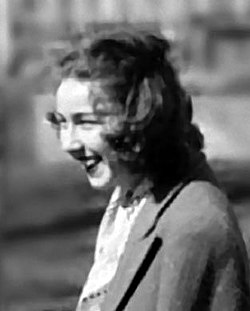Flannery O'Connor Quote
But learned people can analyze for me why I fear hell and their implication is that there is no hell. But I believe in hell. Hell seems a great deal more feasible to my weak mind than heaven. No doubt because hell is a more earth-seeming thing. I can fancy the tortures of the damned but I cannot imagine the disembodied souls hanging in a crystal for all eternity praising God.
Flannery O'Connor
But learned people can analyze for me why I fear hell and their implication is that there is no hell. But I believe in hell. Hell seems a great deal more feasible to my weak mind than heaven. No doubt because hell is a more earth-seeming thing. I can fancy the tortures of the damned but I cannot imagine the disembodied souls hanging in a crystal for all eternity praising God.
Related Quotes
Certainly we can say that the pace of modern life, increased and supported by our technology in general and our personal electronics in particular, has resulted in a short attention span and an addict...
Arthur Rosenfeld
Tags:
being, complicated, critical thinking, daoism, emotion, feeling, hectic, life, meditation, modern life
About Flannery O'Connor
Mary Flannery O'Connor (March 25, 1925 – August 3, 1964) was an American novelist, short story writer, and essayist. She wrote two novels and 31 short stories, as well as a number of reviews and commentaries.
O'Connor was a Southern writer who often wrote in a sardonic Southern Gothic style. She relied heavily on regional settings and grotesque characters, often in violent situations. In her writing, an unsentimental acceptance or rejection of the limitations, imperfections or differences of these characters (whether attributed to disability, race, crime, religion or sanity) typically underpins the drama.
O'Connor's writing often reflects her Catholic faith, and frequently examines questions of morality and ethics. Her posthumously compiled Complete Stories won the 1972 U.S. National Book Award for Fiction and has been the subject of enduring praise.
O'Connor was a Southern writer who often wrote in a sardonic Southern Gothic style. She relied heavily on regional settings and grotesque characters, often in violent situations. In her writing, an unsentimental acceptance or rejection of the limitations, imperfections or differences of these characters (whether attributed to disability, race, crime, religion or sanity) typically underpins the drama.
O'Connor's writing often reflects her Catholic faith, and frequently examines questions of morality and ethics. Her posthumously compiled Complete Stories won the 1972 U.S. National Book Award for Fiction and has been the subject of enduring praise.
